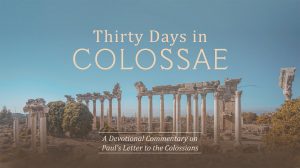Hook, Book, Look and Took are the four elements of a great lesson as shared in the book, Creative Bible Teaching by Lawrence O. Richards.
It’s in the first minutes of a class that we grab (or fail to grab) the attention of our students. Don’t waste those precious opening seconds! Don’t start the class:
- By coming to class late or even just-on-time, wasting the students time while you get set-up,
- With housekeeping details – save them for later,
- With an unrelated joke or comment,
- With a rambling unclear start filled with “ems” and “uhs.”
If you fail to start with a good hook don’t be upset with your students when they respond accordingly. Your student’s deserve better.
Be early. Have everything prepared, ready to go. Have your head in the game. Be enthusiastic.
Capture your student’s attention with a great hook. Develop and rehearse a well-crafted attention-getting opener. Lawrence says a good hook does four things:
- It gets attention.
- It surfaces a need. (the need you want to address)
- It sets a goal.
- It leads naturally to the Book (training) portion of the class. We will discuss this in the next newsletter.
I would like to add a point to his list. A good opener helps your students remember your key points much longer. Your message will stick with them much better.
Here are a few ideas for a great hook! Don’t just use one of these ideas over and over again. It’s important to have variety. Use different ideas to start different classes. Mix it up, but, make sure it is relevant to the point you want to make.
- Tell a compelling story.
A personal story is even better. Rehearse it and be able to tell it well. If you don’t have your own story there are a lot of places to look. Chicken soup for the Soul books are a good starting place and illustrates it well so that it creates a memory aid for your main point. - Ask a thought-provoking question.
A few examples:- What are the things that stand between you and lifelong sobriety?
- What would you like said about you at your funeral?
- Standing at the gates of heaven, and God asks you “Why should I let you in?” What do you reply?
- You could ask a rhetorical question. A rhetorical question is asked merely for effect with no answer expected. The answer may be obvious or one that you are going to answer in your class or message.
- Examples:
- Do you want to be a big failure for the rest of your life?
- If your friend jumped off the bridge would you do it too?
- Examples:
- State a shocking statistic statement or current headline.
Examples:- The revenue that is generated from gambling in the U.S. is more than the revenue that comes from movies, cruise ships, recorded music, theme parks and spectator sports combined.
- People who succeeded even with dyslexia include: Leonardo da Vinci, Ted Turner, Richard Branson, Steven Spielberg, George Patton, Thomas Edison, Alexander Graham Bell and Albert Einstein, among many, many others.
- Use a powerful quote.
- “You are what you do, not what you say you’ll do.”
- “We can’t direct the wind but we can adjust the sails.”
- Show a gripping photo.
- A picture is worth a thousand words.
- Use a creative prop or visual aid.
If you think of an object that will illustrate your point bring it to class. Or think backwards; start with a few objects and think about how you could use one of them to illustrate your point; a piece of fruit, clock, a tool, trash can, dice… - Play a short video.
There are so many videos on the internet today. There is sure to be one that will make your point. Start the class with it without saying a word.
Think about it
- What are other ways NOT to start a presentation?
- Brainstorm ideas for starting your next class or message with other staff members.
- Choose one idea and use it with your next class.



